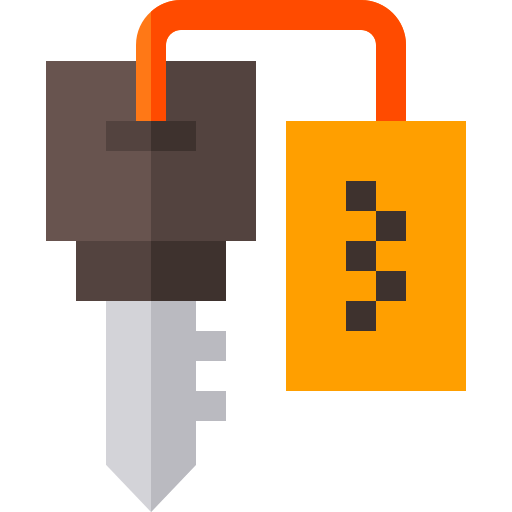In today’s fast-paced world, electronic car keys have become an integral part of our daily lives. These small, convenient devices have replaced traditional metal keys and offer enhanced security and ease of use. However, like all technology, electronic car keys are not immune to failures. In this article, we will explore the top four causes of electronic car key failures, helping you understand why these issues occur and how to prevent them.

Introduction
Electronic car keys, also known as key fobs, have revolutionized the way we access and start our vehicles. These handy devices use radio frequency signals to communicate with your car’s immobilizer system, allowing for keyless entry and ignition. However, despite their convenience, electronic car keys can encounter problems that leave you stranded.
Battery Depletion-Electronic Car Key Failture
One of the most common causes of electronic car key failures is battery depletion. Like all batteries, the one in your key fob has a limited lifespan. When the battery runs low, the key fob loses its ability to transmit signals effectively. To prevent this issue, it’s crucial to replace the battery periodically and keep a spare on hand.
Physical Damage
Electronic car keys are small and often subject to rough handling. Drops, spills, and even exposure to extreme temperatures can damage the key fob’s internal components. Cracks in the casing or damage to the circuit board can render the key fob useless. To avoid physical damage, handle your key fob with care and consider using protective covers.
Programming Issues For Electronic Car Key Failure
Electronic car keys are programmed to work with specific vehicles. If there’s a problem with the programming, your key fob won’t function correctly. This can happen if the key fob is reprogrammed incorrectly or if there’s a glitch in the car’s immobilizer system. It’s essential to follow manufacturer instructions when programming your key fob or seek professional help if needed.

Common Programming Issues-Electronic Car Key Failture
Battery Depletion
H1: Battery Depletion
One of the most common issues with electronic car keys is battery depletion. When the key fob’s battery is low, it can lead to intermittent or complete failure of the key. Symptoms may include a weak signal, unresponsive buttons, or no response at all.
To address this issue, replace the battery with a new one. Consult your car’s manual for instructions on how to open the key fob and replace the battery properly.
Syncing Problems-electronic Car Key Failure
H2: Syncing Problems
Syncing problems occur when the electronic key loses its connection with the car’s computer. This can result from various factors, including electromagnetic interference, changes in the car’s computer system, or even accidental desynchronization.
To resolve syncing problems, re-sync the key fob with your vehicle according to the instructions provided in your car’s manual. This usually involves a sequence of button presses and ignition cycles.
Software Glitches-Electronic Car Key Failure
H3: Software Glitches
Sometimes, software glitches within the car’s system or the key fob itself can cause programming issues. These glitches can lead to errors in communication and functionality.
In such cases, updating the software of your key fob or your car’s computer system may be necessary. Consult your car’s manufacturer or a professional technician for guidance on software updates.
Key Fob Damage-Electronic Car Key Failure
H4: Key Fob Damage
Physical damage to the key fob, such as water exposure, dropping, or wear and tear, can result in electronic key failure. Cracked or damaged key fobs may not function correctly.
If your key fob is damaged, consider getting it repaired or replaced by a professional locksmith or your car’s manufacturer.
Troubleshooting and Solutions For Electronic Car Key Failure
Replacing the Battery
H1: Replacing the Battery
If you suspect battery depletion as the cause of your electronic key failure, follow these steps to replace the battery:
- Open the key fob carefully.
- Remove the old battery.
- Install a fresh battery of the identical type
- Close the key fob securely.
Re-Syncing the Key-Electronic Car Key Failure
H2: Re-Syncing the Key
To re-sync your key fob, follow the instructions provided in your car’s manual. Typically, the process involves:
- Sitting inside the car with the key fob.
- Follow the provided instructions to turn the ignition on and off.
- Depress certain buttons on the key fob in a specific order.
Updating Software-Electronic Car Key Failure
H3: Updating Software
For software-related issues, consult your car’s manufacturer or a professional technician for guidance on updating the key fob’s software or the car’s computer system.
Key Fob Repair For Electronic Car Key Failure
H4: Key Fob Repair
If your key fob is physically damaged, seek assistance from a professional locksmith or your car’s manufacturer to repair or replace it.
Preventive Measures-Electronic Car Key Failure
Regular Maintenance
H1: Regular Maintenance
To prevent electronic car key issues, perform regular maintenance, including cleaning the key fob, checking the battery, and inspecting for physical damage.
Backup Key Programming
H2: Backup Key Programming
Always keep a spare electronic key fob and ensure it’s programmed to your vehicle. This can be a lifesaver in case your primary key fails.
Safe Handling Practices-Electronic Car Key Failture
H3: Safe Handling Practices
Handle your electronic key fob with care. Avoid exposing it to water, dropping it, or subjecting it to extreme temperatures.
Professional Assistance
If you encounter persistent electronic key issues that you cannot resolve on your own, seek professional assistance. Certified technicians and locksmiths can diagnose and repair complex problems.
Signal Interference For Electronic Car Key Failure
Signal interference is another common cause of electronic car key failures. Other electronic devices, such as cell phones and remote controls, can emit signals that interfere with your key fob’s signal. This can result in sporadic or complete loss of functionality. To mitigate signal interference, keep your key fob away from other electronic devices when using it.

How Do They Work?
Electronic car keys transmit a unique code to the car’s receiver when you press a button. If the code matches the one stored in the car’s system, it grants access or starts the engine, depending on the button pressed.
Signal Interference: The Culprit
What Is Signal Interference?
Signal interference occurs when external factors disrupt the radio frequency signals between your electronic car key and your vehicle’s receiver. This interference can prevent the key from working correctly.
Common Causes of Signal Interference
- Electromagnetic Interference (EMI): EMI can be caused by nearby electronic devices, power lines, or even solar flares. These sources emit electromagnetic radiation that can disrupt the key’s signal.
- Physical Obstacles: Thick walls, metal objects, or other vehicles can block or reflect the key’s signal, causing it to weaken.
- Low Battery: A weak battery in the key fob can also lead to signal interference.
Effects of Signal Interference
Inconvenience
Signal interference can be highly inconvenient, especially when you are in a hurry or facing adverse weather conditions. You may find yourself locked out of your car or unable to start it, leaving you stranded.
Security Concerns
Signal interference can also pose security risks, as it may allow unauthorized access to your vehicle or provide an opportunity for theft.
Preventing Signal Interference
Keep Your Key Fob in Good Condition
Regularly check and replace the battery in your key fob to ensure it transmits a strong signal. Cleaning the contacts inside the fob can also help maintain a reliable connection.
Avoid Interference Sources
Be mindful of your surroundings and try to avoid parking your car near sources of electromagnetic interference. Additionally, consider using a signal booster or a signal-blocking pouch to protect your key fob when not in use.
Conclusion
Electronic car keys have brought convenience and security to our lives, but they are not without their challenges. Understanding the top causes of electronic car key failures can help you prevent these issues and ensure that you’re never locked out of your vehicle unexpectedly. Remember to maintain your key fob, handle it with care, follow proper programming procedures, and be mindful of signal interference.
FAQs
- How frequently should I change the battery in my electronic car key?
- It’s advisable to swap out the battery every one to two years, with the frequency depending on how often you use it.
- Can I reprogram my electronic car key myself?
- It’s possible to reprogram some key fobs yourself, but it’s best to follow manufacturer instructions or seek professional help for accurate programming.
- What should I do if my electronic car key stops working suddenly?
- Check the battery first. If that’s not the issue, consult your vehicle’s manual for troubleshooting steps or contact a locksmith or dealership.
- Are there any DIY methods to reduce signal interference with my key fob?
- You can try keeping your key fob away from other electronic devices, but the best solution is to avoid placing them close together.
- How do I know if my key fob has physical damage?
- Inspect the key fob for cracks, visible damage, or malfunctioning buttons. If you notice any issues, it may have physical damage that needs repair.
Now that you’ve learned about the top causes of electronic car key failures, you can take proactive steps to ensure your key fob remains reliable. Keep these tips in mind to enjoy uninterrupted access to your vehicle’s features.
